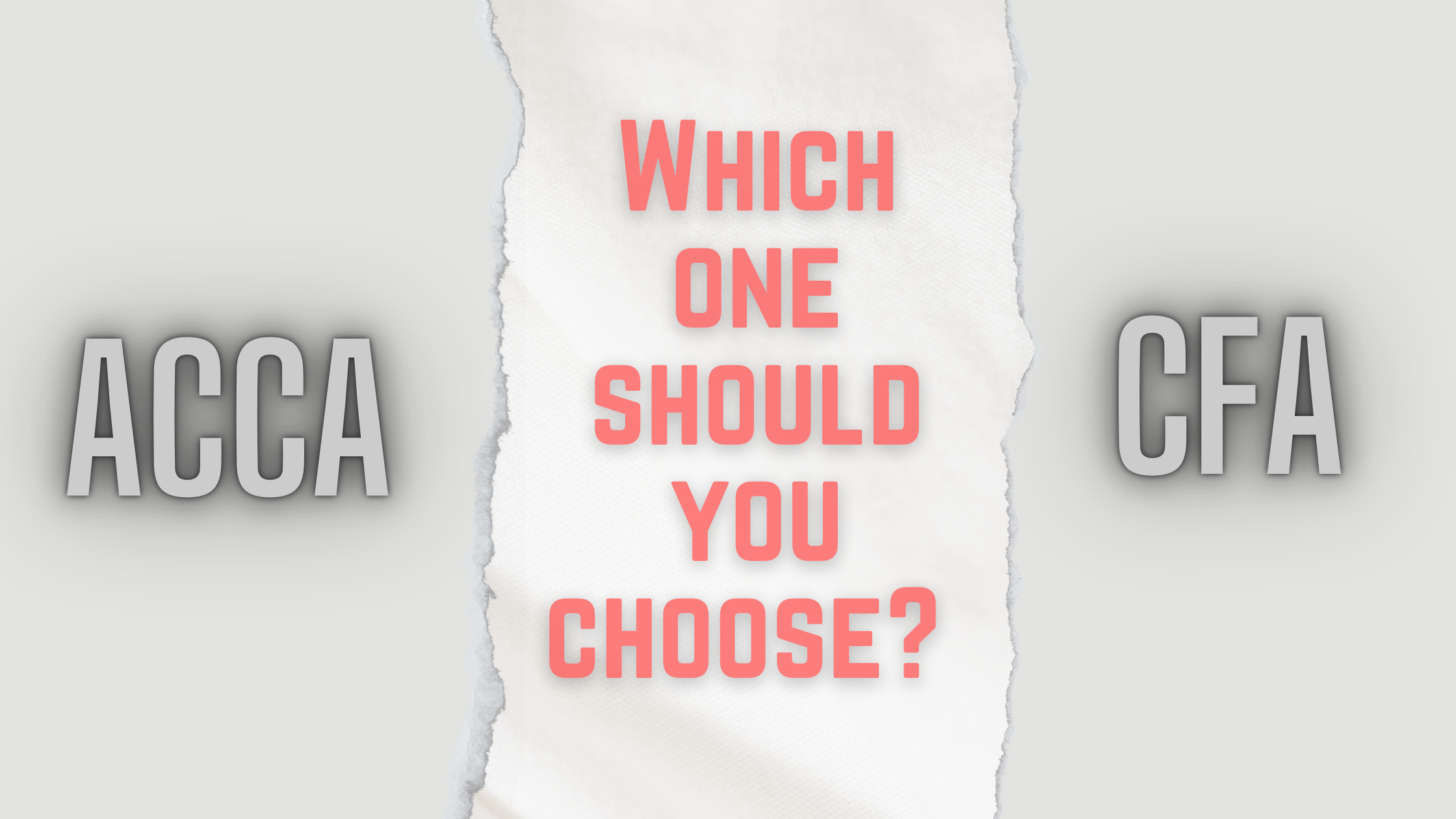Choosing between the ACCA (Association of Chartered Certified Accountants) and CFA (Chartered Financial Analyst) qualifications depends on your career goals, interests, and the specific areas of finance you wish to specialize in. Here is a comparison to help you decide:
ACCA (Association of Chartered Certified Accountants)
Overview:
- Focus: Broad accounting and finance knowledge.
- Recognition: Globally recognized, particularly in the UK and Commonwealth countries.
- Curriculum: Covers financial and management accounting, taxation, audit, law, and financial management.
- Duration: Typically, 3-4 years, depending on prior qualifications and exemptions.
- Exams: 13 exams, with some exemptions possible based on previous education.
- Work Experience: Requires three years of relevant work experience.
Ideal For:
- Those looking to pursue a career in accounting, or finance roles within companies.
- Individuals interested in roles such as financial accountant, management accountant, tax consultant, or finance manager.
- Professionals aiming to work in a wide range of industries, including corporate finance, public practice, and public sector.
CFA (Chartered Financial Analyst)
Overview:
- Focus: In-depth investment analysis and portfolio management.
- Recognition: Highly regarded globally, especially in the investment and finance sectors.
- Curriculum: Emphasizes investment management, financial analysis, ethics, economics, and portfolio management.
- Duration: Typically, 2-5 years, depending on study pace and exam success.
- Exams: Three levels of exams, requiring rigorous preparation.
- Work Experience: Requires four years of relevant professional work experience.
Ideal For:
- Those looking to specialize in investment management, financial analysis, or portfolio management.
- Individuals interested in roles such as equity analyst, portfolio manager, investment banker, financial advisor, or risk manager.
- Professionals aiming to work in asset management firms, investment banks, hedge funds, or other financial institutions.
Key Considerations:
Career Goals:
Choose ACCA if you aim for a broad accounting and finance career with diverse opportunities across different sectors.
Go for CFA if you want to specialize in investment management and work in roles focused on financial analysis and portfolio management.
Interest Areas:
ACCA covers a wider range of topics in accounting, auditing, and finance.
CFA provides deep expertise in investment analysis and portfolio management.
Geographical Preference:
ACCA is highly recognized in the UK, Europe, and Commonwealth countries.
CFA is globally recognized with strong recognition in the US, Europe, and Asia.
Time and Effort:
Both qualifications are rigorous and require significant study time and effort.
Consider your ability to commit to the study and exam preparation required for each.
Work Experience:
ACCA requires three years of relevant experience.
CFA requires four years of relevant experience, which can be earned before, during, or after passing the exams.
Conclusion:
If your career interests lean towards accounting, and a broader range of finance roles, ACCA might be the better choice. If you are passionate about investment management, financial analysis, and portfolio management, CFA is likely the more suitable path. Both qualifications are highly respected and can open doors to rewarding careers in finance.
For Further Information/Assistance, Contact Us.
Additionally, we invite you to explore our other blogs covering various topics related to the ACCA:
Maximize Your Career Potential: How to Combine ACCA with a B.Com Degree?
Top 10 Benefits of Earning Your ACCA Qualification in 2024
ACCA Jobs Salary: What to Expect in 2024 Across Different Regions
Comprehensive Guide to ACCA Exam Dates in 2024: Key Dates and Preparation Tips
Understanding ACCA Global Pass Rates: A Comprehensive Overview
How ACCA Can be a Game Changer for B.Com Graduates?
Step-by-Step Guide to ACCA Registration
How ACCA can Uplift Your Accounting Career?
ACCA – All you want to know about the Course, Eligibility, Syllabus, Exemptions and Salary
Breaking Down the ACCA Course Subjects: What You Need to Know

Comments are closed.